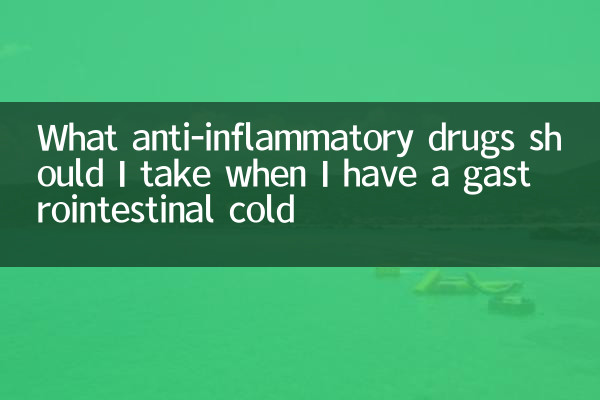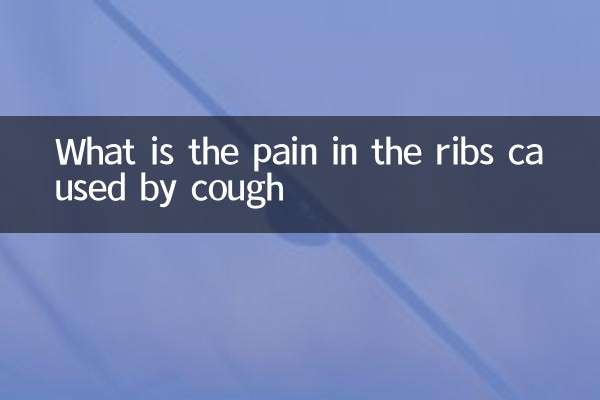What anti-inflammatory drugs should I take when I have a gastrointestinal cold
Recently, gastrointestinal colds have become one of the popular health topics, and many netizens have discussed related symptoms and treatment methods on social platforms and health forums. Gastrointestinal colds (also known as gastrointestinal colds) are usually caused by viral or bacterial infections, mainly manifested as symptoms such as diarrhea, vomiting, abdominal pain and fever. To address the inflammation problem, choosing the right anti-inflammatory drug is the key. The following will combine the hot contents of the entire network for the past 10 days to compile a structured guide to help everyone understand the medication choices for gastrointestinal colds.
1. Common causes of gastrointestinal colds

Gastrointestinal colds are mostly caused by infection with norovirus, rotavirus or bacteria (such as E. coli, salmonella). Viral gastrointestinal colds usually do not require antibiotic treatment, while bacterial infections may require anti-inflammatory medication assistance. The following are the data related to gastrointestinal colds that netizens have hotly discussed in the past 10 days:
| Type of cause | Common pathogens | Do you need anti-inflammatory drugs? |
|---|---|---|
| Viral | Norovirus, rotavirus | Generally not required |
| Bacterial | Escherichia coli, Salmonella | May be required |
2. Selection of anti-inflammatory drugs for gastrointestinal colds
Anti-inflammatory drugs (antibiotics) are only effective against bacterial infections, and abuse can lead to drug resistance. The following are the anti-inflammatory drugs with high popularity in the past 10 days and their application conditions:
| Medicine name | Applicable symptoms | Things to note |
|---|---|---|
| Norfloxacin | Bacterial diarrhea | Prohibited for pregnant women and children |
| Bernardine | Mild and moderate bacterial enteritis | Less side effects |
| Amoxicillin | Bacterial infection with fever | Need a doctor's guidance |
3. Care suggestions for gastrointestinal colds
In addition to taking medicine, you should also pay attention to diet and hydration during gastrointestinal colds. The following are the key points of care summarized by netizens:
| Nursing measures | Specific methods |
|---|---|
| Diet conditioning | Light and easy to digest foods (such as porridge, noodles) |
| Replenish water | Oral rehydration salt or light saline |
| rest | Avoid strenuous exercise and ensure adequate sleep |
4. Answers to recent hot questions
According to the search data in the past 10 days, the following are some of the most concerned questions for netizens:
1. Can cephalosporin be taken for gastrointestinal colds?
Cephalosporin antibiotics are effective for bacterial infections, but they need to be used after being diagnosed with bacterial gastroenteritis to avoid abuse.
2. What medicine should I take for viral gastrointestinal cold?
Viral infections are mainly treated with symptomatic treatment, such as antidiarrhea drugs (montmorillonite powder), probiotics, etc., without antibiotics.
3. How long will it take to cure a gastrointestinal cold?
Usually it can heal itself in 3-7 days. If the symptoms continue or worsen, seek medical treatment in time.
5. Summary
Drugs for gastrointestinal colds need to be judged based on the cause. Anti-inflammatory drugs can be used as prescribed by the doctor, while viral infections need to be treated symptomatically. Recent hot discussions show that rational use of medicine and scientific nursing are the key to rehabilitation. If the symptoms are serious or continue to relieve, it is recommended to seek medical treatment in a timely manner.

check the details

check the details